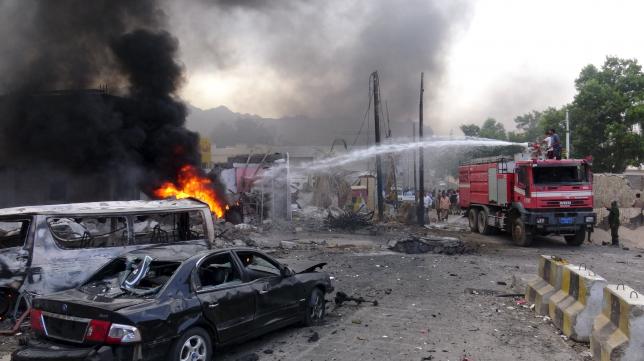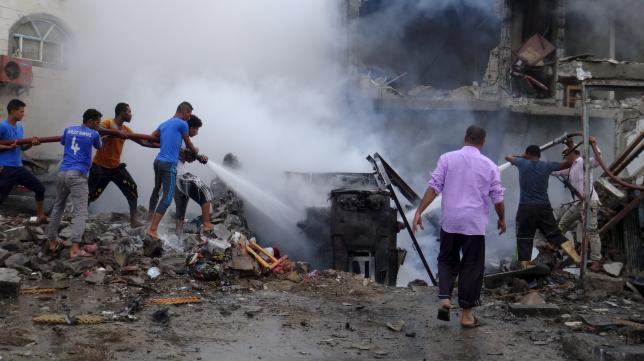Islamic State claims Aden suicide car bombing that kills seven

Islamic State militants claimed responsibility for a suicide car bombing on Thursday that killed seven people outside Yemeni President Abd-Rabbu Mansour Rabbu Hadi's residence in the southern city of Aden.
Local officials and eyewitnesses reported the death toll and said 10 other people were injured. Officials said Hadi was inside his residence at the time of the attack and was unharmed.
"A suicide car bomb targeted a security checkpoint about 500 meters (yards) from the Maashiq palace. The majority of the casualties are civilians," an official told Reuters by telephone.
It was the latest in a spate of deadly attacks by Islamist militants on Yemeni government and security targets.
In a statement online, Islamic State said the attack was carried out by a suicide car bomber it identified as Abu Hanifa al-Hollandi. The nom de guerre suggested the attacker was a Dutch citizen.
Hadi was forced by Shi'ite Houthi rebels to flee the capital Sanaa in 2014 and is now based in Aden, Yemen's second largest city, where his embattled government is trying to project its authority after its loyalists, backed by Sunni Muslim Gulf Arab forces, seized it back in July.

People try to extinguish fire at the site of a suicide car bombing outside the Yemeni President Abd-Rabbu Mansour Rabbu Hadi's residence in the southern city of Aden, January 28, 2016. REUTERS/Stringer
Backed by a Saudi-led military alliance of Arab states, Hadi's forces have been battling the Iran-allied Houthi militia and followers of former president Ali Abdullah Saleh who are based in Sanaa. The war has killed 6,000 people.
Islamic State insurgents have also stepped up operations, emerging as a forceful rival to Al Qaeda in the Arabian Peninsula, which has been the main Islamist militant group in the country in recent years.
Suicide bombers from Islamic State killed 15 people in an attack on a hotel housing the government in Aden and seven at a Houthi-run mosque in Sanaa on Oct. 5.
Dozens of armored vehicles and troops from the United Arab Emirates arrived in Aden's port on Wednesday, security officials said, as part of a plan to tackle security chaos.
Политика конфиденциальности | Правила пользования сайтом







